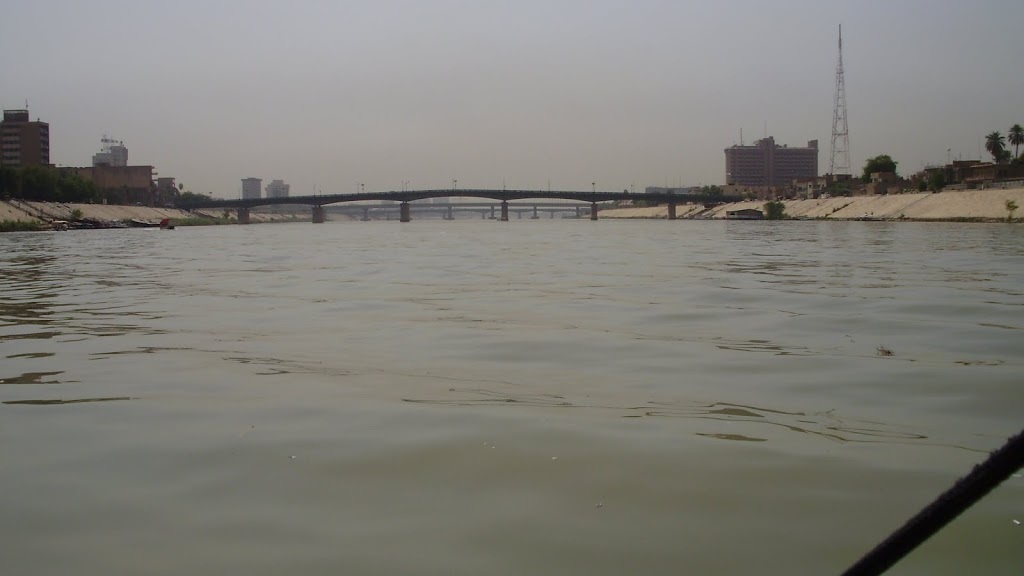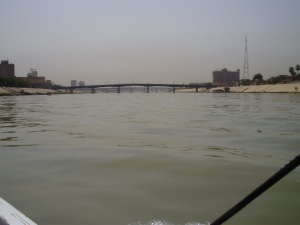Kurdistan deadlocked over government
A new government in Iraq’s Kurdistan region awaits deals between coalition partners, WritesSalah Nasrawi
Nearly four months after its general elections, Iraq’s self-ruled Kurdistan region is still without a functioning government due to political differences and bargaining over allocations of posts in the new parliament and cabinet.
Leaders of the prospective coalition parties have been struggling for weeks to finalise an agreement on sharing the seats in the new government and its programme. The failure to form a coalition government will accentuate fears of polarisation in Kurdistan, which is already gripped in budget and oil disputes with the central government in Baghdad.
The impasse has raised questions about Kurdistan’s democracy and whether its leaders, once viewed as liberators and reflective of Kurdish nationalism, are now straying into autocrats at the top of a corrupt bureaucracy in their emerging national state.
The Kurdistan region held its fourth legislative elections on 21 September, and final results were announced two weeks later. The new assembly convened briefly on 6 November to allow members to be sworn in, but it was then suspended indefinitely.
However, there is growing unease that prolonged coalition bickering and tactical posturing will not pay off in Kurdistan’s instability-prone politics. The risk of a power struggle has already prompted neighbouring Iran to offer its mediation to end the stalemate.
Some 88 MPs have demanded that the parliament reconvene immediately to resume its business and elect a speaker. They have warned that the suspension of the assembly for too long “will create a legal vacuum” and make people “lose confidence” in the parliament.
The elections in September resulted in a hung parliament in which no party garnered enough votes to form a majority government. Kurdistan’s parliament is composed of a total of 111 seats, out of which 11 were reserved for minorities such as Christians, Tourkoumans and Yazidis.
The Kurdistan Democratic Party (KDP), the region’s most powerful party led by Kurdish regional president Masoud Barzani, secured 38 seats, far shy of the 56 seats needed to form the government.
Its main partner, Iraqi President Jalal Talabani’s Patriotic Union of Kurdistan (PUK), won only 18 seats. The main opposition party, Gorran, or Change, which run on a reform ticket, won 24 seats, and the rest of the seats went to smaller parties which are also cashing in on voter dismay.
The result has thrown into disarray the bi-party system which had dominated Kurdistan’s politics for nearly two decades and made a coalition government with Gorran’s participation inevitable. Gorran was established in 2009 after its leaders split from the PUK seeking to promote a reform agenda in the region.
The Kurds have enjoyed semi autonomy since 1991, when a US-British no-fly zone helped protect them from former Iraqi president Saddam Hussein’s forces until his fall in the 2003 US-led invasion. Since then, the region has been enjoying self-rule as a federal region of Iraq.
From its emergence in 1991, the Kurdish Autonomous Region has been ruled by the alliance of the KDP and PUK. The two resistance groups which led the Kurdish armed struggle against the Iraqi governments promised a democratic Kurdistan, but as they held to power they pushed through measures that gave them sweeping powers and established an autocratic regime that belies the image of a true democracy.
Now the outcome of the elections has brought to the limelight public disillusionment over the two parties’ consolidation of power, their commitment to corruption and cronyism and their unbridled security forces.
Barzani had already asked his nephew and son-in-law Nechirvan Barzani, who is also his deputy as party chief, to form the government. The move was considered as highly unusual before parliament convenes, but it was seemingly aimed at undercutting any bid by the other parties to vie for the post.
Because the KDP can neither form the government alone nor with its partner the PUK, it offered to form a broad coalition government, accepting the prospect of making Gorran and other opposition parties junior partners
Initially, the KDP made it clear that it would grant the first choice of partnership in the next government to its strategic ally and coalition partner the PUK, which had lost most votes to Gorran.
The KDP also rejected preconditions by the main opposition parties, which had demanded portfolios in the new government distributed according to the popular vote.
But negotiations to form the new government have stalled, as have efforts by Gorran to challenge the hegemony of the two ruling parties.
Kurdish press reports suggest that demands by the PUK to keep the post of the speaker of the parliament and several key cabinet portfolios are the main obstacles behind the delays in forming the new government.
The demands have been met by strong opposition by Gorran, which considers them to be attempts by the PUK, whose followers control the security forces and occupy prominent slots in the public services in many parts of Kurdistan, to retain its position of dominance despite its heavy losses in the elections.
As the coalition talks enter their fifth month next week, the KDP, which fears a backlash if the government deadlock continues, appears to be willing to abandon its “most favoured” treatment to its old strategic ally.
In recent days, several KDP officials have gone public in blaming the PUK for the delay in forming the government and issued warnings that their party’s patience may be running out.
The London-based Asharq Al-Awsat newspaper reported on Monday that Iran had asked the KDP and PUK to send high-level delegations to Tehran for talks on the government crisis.
The paper quoted an unidentified Kurdish official as saying that Iran “doesn’t want to see the political status of its strategic ally the PUK weakened”.
Eventually, political deals may be done to form a new government, but the question raised by many Kurds is whether this will be able to get down to business and what it can afford for the Kurds.
During the election campaign, there were a number of themes that came through as priorities for Iraqi Kurdistan’s future, on top of them reform of the political system in the region including drafting a constitution to make it more democratic.
The next government is expected to address this issue, which was also among the main campaign promises by Gorran. Party leaders realise that compromising their ideals in exchange for a few cabinet jobs will cost them many of their supporters.
Since its inception following an uprising against Saddam’s government, the self-ruled Kurdish region has had no constitution, and a draft constitution which was passed by the regional parliament in 2009 was never put to a referendum.
The pro-reform parties have insisted on reworking this constitution and have argued that the draft charter was rushed through by the parliament which was then under the control of the two ruling parties.
They even claim that some articles were changed, including those which made the Iraqi Kurdistan region into a presidential system, whereas the original document states that the region enjoys “a parliamentary political system”.
Another dispute is over Barzani’s presidency. In July, lawmakers from the two ruling parties in the region voted unanimously to extend Barzani’s term exceptionally for two more years, despite a limit imposed by the draft constitution on his presidency.
The opposition parties denounced the vote as a coup targeting the parliament and the process of democratisation in the region. The Kurdistan region’s draft constitution states that the president of the Kurdistan region “may be re-elected for a second term as of the date this constitution enters into force”.
Other main opposition demands include unifying the region’s army of the Peshmergas and security forces, institutionalising the government, ensuring the independence of the judiciary, and creating a parliamentary political system.
A key challenge that the new government will face is mounting demands to address corruption and cronyism in the region. For the last 10 years, the administration has been refusing to meet any of these demands, allowing internal discontent to fester.
In addition, the next government should tackle the problem of the Barzani family’s domination of business and oil revenues, which allows the KDP to fund a wide network of services and patronage, putting other parties at a disadvantage.
Simultaneously, most Kurds want the new government to end the heavy-handedness of the security forces which are said to pull strings behind the scenes and who have been accused of repression and corruption.
Last month, Kurdish journalist Kawa Germyani was murdered outside his home. It’s believed he was targeted because of his investigations into corrupt security officials. His family have filed a law suit against PUK officials, including a politburo member whom they believe ordered his execution.
However, the big challenge remains if Kurdistan, celebrated by various international actors as a haven of peace and democracy in crisis-plagued and violence- battered Iraq, has any chance of producing significant political change.
More specifically, can Iraqi Kurdish democracy exist and advance under its current system when one hegemonic party is clinging to power and doing everything it can to abuse its power and stack the odds in its favour?







